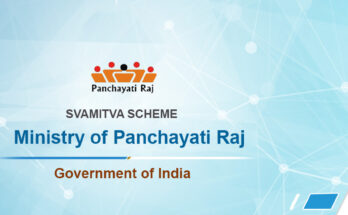The relief to the consumers, The Center reduced duty on Crude Palm Oil.
In order to bring relief to the consumers and reduce the edible oil prices, the Center has reduced the duty on Crude Palm Oil (CPO) by 5%.
Further, to cool down the prices of RBD Palmolein (Refined Palm oil), the Department of Food & Public Distribution has recommended the removal of the restriction on the import of RBD Palmolein and putting it in the open general category of imports.
These Moves are expected to lower the prices of edible oils for domestic consumers.
The major edible oils consumed in the country are mustard, soybean, groundnut, sunflower sesame oil, niger seed, safflower seed, castor and linseed (primary source) and coconut, palm oil, cottonseed, rice bran, solvent extracted oil, tree & forest origin oil. The total domestic demand for edible oils in the country is approximately 250 LMT per year. Around 60% of the edible oils consumed in the country is met through imports. Palm oils (Crude + Refined) import constitutes around 60% of the total edible oil imported, out of which 54% is imported from Indonesia and Malaysia. As the country has to depend heavily on imports to meet the gap between demand and supply, International prices have an impact on domestic prices of edible oils.
Food inflation including high prices of edible oils has been a cause of concern and therefore the government has been monitoring their prices and taking steps by way of removing bottlenecks to soften prices. A mechanism was institutionalized involving nodal offices of the Customs department, FSSAI, Plant Quarantine division to monitor the speedy clearance of food commodities like pulses and Crude Palm Oil (CPO) at shipping ports. The international prices of crude edible oil and refined palm oil were showing a declining trend in prices over the past month. Still, the prices of domestic refined palm oil and crude edible oil remained high.
ग्राहकांना दिलासा, केंद्राने क्रूड पाम तेलावरील शुल्क कमी केले.
ग्राहकांना दिलासा देण्यासाठी आणि खाद्यतेलाचे दर कमी करण्यासाठी केंद्र सरकारने क्रूड पाम तेलावरील (सीपीओ) शुल्कात 5% कपात केली आहे. तसेच आरबीडी पामोलिनच्या (रिफाईंड पाम तेल) किंमती कमी करण्यासाठी अन्न व सार्वजनिक वितरण विभागाने आरबीडी पामोलिनच्या आयातीवरील निर्बंध हटवण्याची आणि ते आयातीच्या खुल्या सर्वसाधारण श्रेणीत आणण्याची शिफारस केली आहे.
या उपायांमुळे देशांतर्गत ग्राहकांसाठी खाद्य तेलाच्या किंमती कमी होण्याची शक्यता आहे.देशात वापरल्या जाणाऱ्या प्रमुख खाद्यतेलांमध्ये मोहरी, सोयाबीन, भुईमूग, सूर्यफूल , तीळ तेल, नायजर सीड , करडई , एरंडेल व जवस (प्राथमिक स्त्रोत) आणि नारळ, पाम तेल, कपाशी, राईस ब्रान , सॉल्व्हन्ट एक्सट्रॅक्टेड ऑइल यांचा समावेश आहे. आहे. देशातील खाद्य तेलांची एकूण देशांतर्गत मागणी वार्षिक सुमारे 250 एलएमटी आहे. देशात वापरल्या जाणाऱ्या खाद्यतेलांपैकी सुमारे 60% तेलांची आयात केली जाते. आयात केलेल्या एकूण खाद्यतेलपैकी पाम तेल (क्रूड + रिफाईंड) आयात सुमारे 60% आहे, त्यापैकी 54% इंडोनेशिया आणि मलेशियामधून आयात केली जातात. मागणी आणि पुरवठा यातील तफावत दूर करण्यासाठी देशाला आयातीवर जास्त अवलंबून रहावे लागणार असल्याने आंतरराष्ट्रीय किमतीचा देशातल्या खाद्यतेलांच्या दरावर परिणाम होतो.
खाद्य तेलाच्या उच्च किमतींसह अन्नधान्य चलनवाढ ही चिंतेचे कारण बनली आहे आणि म्हणूनच सरकार त्यांच्या किंमतींवर नजर ठेवत आहे आणि किंमती नरम करण्यासाठी अडथळे दूर करण्याच्या दृष्टीने पावले उचलत आहेत. शिपिंग बंदरांवर कडधान्ये आणि क्रूड पाम ऑईल (सीपीओ) यासारख्या खाद्यपदार्थांच्या द्रुत मंजुरीवर नजर ठेवण्यासाठी कस्टम विभाग, एफएसएसएआय, प्लांट क्वारंटाईन विभागातील नोडल ऑफिसचा समावेश असलेल्या यंत्रणेची स्थापना केली गेली. क्रूड खाद्यतेल आणि रिफाईंड पाम तेलाच्या आंतरराष्ट्रीय किमतींमध्ये गेल्या एक महिन्यापासून किंमतींमध्ये घसरण दिसून येत आहे. तरीही देशांतर्गत परिष्कृत पाम तेल आणि क्रूड खाद्यतेल यांचे भाव कायम आहेत.



